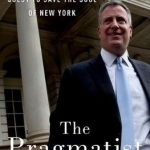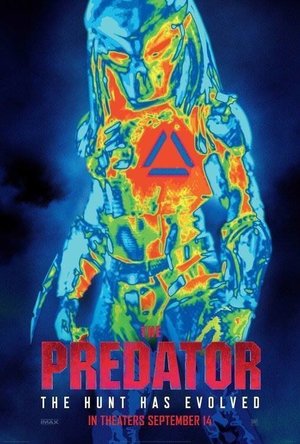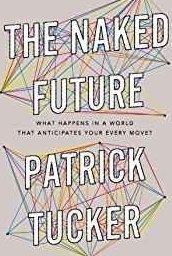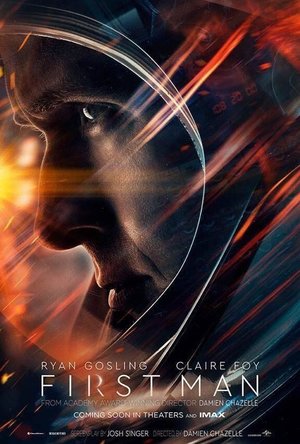
eDarling - For people looking for a relationship
Social Networking, Entertainment and Stickers
App
eDarling is a serious dating app for the educated, successful and single professional! By take the...

Fruit Ninja®
Games and Entertainment
App
Slice fruit, don’t slice bombs – that’s all you need to know to get started with the addictive...

Chess Pro - with coach
Games
App
▻ ▻ ▻ Special offer: 50% off TODAY !!! (normal price US$19.99/19.99€/£19.99) ▻ Do you...

! My Talking Lady Dog PRO - Virtual Pet
Games, Entertainment and Stickers
App
Adopt My Talking Lady Dog, an adorable VIRTUAL PET for girls and boys, and have fun playing with...

RacquetTune - String Tension
Sports and Utilities
App
Listen to your racquet and perfect your game! RacquetTune ensures that your racquet is ideally...

The Pragmatist: Bill de Blasio's Quest to Save the Soul of New York
Book
When Michael Bloomberg handed the city over to Bill de Blasio, New York and the country were...
Gareth von Kallenbach (980 KP) rated The Predator (2018) in Movies
Jun 19, 2019
The film centers on a crashed Predator ship which is witnessed by an American Sniper on assignment named “McKenna” (Boyd Holbrook). While able to recover artifacts from the crashed ships escape pod, McKenna also sees his team brutally taken out by the pilot and soon finds himself targeted by a secret organization due to his knowledge of the otherworldly guest.
At the same time, a Biologist named Casey (Olivia Munn), is brought to a secret locale where she gets an up close encounter with the ship’s pilot in captivity and learns that a government organization has been tracking the visitors and that their visits have increased in recent years.
At the same time McKenna is ushered off to a bus full of unhinged soldiers who are to be locked away due to their numerous issues. Unbeknownst to his superiors; McKenna has mailed the recovered technology to his son who thanks to being on the Autism Spectrum, is able to figure out aspects of the tech which he believes to be a game.
This all leads to a series of brutal encounters as an enhanced Predator arrives and with two of the deadly creatures on the loose, the unhinged soldiers are largely the best hope humanity has of surviving what is to come.
While aspects of the plot seem a bit muddled and at times a bit to linear; the film for the most part works for what fans want and in many places gives them the sequel they have waited for. There is a lot of humor in the film which reportedly divided early test audiences but the action is as brutal and graphic as one would want and expect from the series.
The film does have some big gaps in logic such as how a Biologist can be so comfy and skilled with Assault Weapons and seems to have no issues throwing herself into combat situations and the larger plot points of the Predator objective is intriguing and will open up much debate amongst fans.
The last third of the film was reshot and you can tell at times how parts seem a bit out of synch from early parts of the film especially in the appearance of some characters whose look changes during the film which clearly indicates when segments of the film were shot.
I know the film will likely divide some fans who do not like the humor and wanted a more evade and survive style plot but Black has crafted an interesting opening chapter which is said to be the first of a planned trilogy.
While far from perfect, “The Predator” does give fans some interesting characters and plenty of laughs to go with the action and is a worthy entry into the series as long as you are willing to overlook the issues and enjoy the ride.
http://sknr.net/2018/09/11/the-predator/
BookblogbyCari (345 KP) rated The Naked Future in Books
Aug 5, 2018
This is a book about how the digital footprint we leave behind us can be used to make predictions about our future in all aspects of our lives. But are we seeing the coming to being of a dystopian science fiction, or are we tapping into a new superpower?
Every app on every device we use leaves a digital trail about us, and this has implications in the fields of medicine and the spread of infections, education and learning, and crime prediction, through to movie preference and dating.
The book predominantly examines the value to society in general but also looks at the benefits to the individual. Of course, these benefits come at a cost to our privacy, which the book also briefly addresses. Each chapter is centered on its own topic. I will mention each but in the interests of brevity won’t go into detail on each topic.
Chapter 1 begins by describing how certain apps can be extremely useful warning providers, but by the end of the chapter, we are looking at how your smartphone apps can be used to locate you, even when your GPS is turned off and you’re not geo-tagging posts or tweets. With modern statistical models and enough data points, it’s possible to predict where you will be down to the hour and within a square block one and a half years from now. Turning off your GPS doesn't actually make you less predictable, it just makes your predictability level harder to detect - your future remains naked.
Similarly, in Chapter 2 which examines deliberate self-tracking, Tucker notes that Fitbit users who are confused or ignorant of the device’s privacy settings are inadvertently sharing the data details of their sexual activity.
This seems like frightening stuff, but then the conversation turns to more benevolent uses of such technology. Chapter 3, by way of an imagined story, examines how such technology can be used to predict the spread of dangerous infections, including the identification of new strains of virus as new mutations occur.
Chapter 4 looks at the use of such technology in weather forecasting, and how it’s been used to make way for insurance against the effects of the weather for affected businesses. Chapter 5 explores how movie/book choice and ratings can be used to predict what makes a good movie/book.
We go back to the frightening stuff in Chapter 6. Here Tucker talks about how the smartphone has become the ultimate shopping accessory. Knowing what habitual time an individual wants a coffee, cig, or beer, is ideal for online advertisers, who will be able to send you a voucher/coupon or a mere suggestion right there on the spot. There could also be surveillance systems examining what you pick up and consider buying but don't put into basket /trolley. Tucker goes on to describe how data brokers such as Acxiom have begun selling on to advertisers access to not only your data to also to your future decisions.
Chapter 7 looks at education and learning, and makes the following good points: “What telemetric education offers is the chance for all students to raise their hands and be heard, without fear of confirming some unflattering, broadly held perception about their social group.” And “Imagine for a moment the power of knowing beforehand how well you would perform on a test but how disempowered you would feel if that same future was naked to your competition, or to your future potential employers.”
I like the title of chapter 8 “When Your Phone Says You’re In Love”. Here Tucker tells how online dating sites have become a living social science lab. Again here your personal details can be sold on. In the future, you could be rating your actual get-togethers on the app. Already invented is a “sociometer” which detects unconscious biological signals which show what role you’re taking in a conversation, and can then produce predictions on how the rest of the conversation will go.
Chapters 9 and 10 look at predictions in the where, when and who of acts of crime. He discusses where it has worked so far. But on this Tucker says “Predictive policing in the wrong hands looks less like a boon to public safety and more like a totalitarian hammer.”
The book concludes with Chapter 11, titled “The World That Anticipates Your Every Move”. Here one interviewee said as “Privacy is a blip on the radar of history.” Indeed the chapter ends with an obituary to privacy, where Tucker says “we will feel increasingly powerless against the tide of transparency rendering this planet in a new form as surely as the movement of glaciers carved our canyons and valleys.”
I’ve highlighted here the more worrisome aspects of the topics, but it’s important to note that Tucker does aim to offer a prescription for the situation, though it’s spread out in occasional paragraphs here and there rather than as a useful reference at the end. That said I found the actionable advice was rather brief and unoriginal.
Tucker presents a fair and balanced view of this important and highly relevant topic of our times, and the book is clearly well-researched. Some chapters show a little humor which was fun, but although the book is aimed at the layman, I often felt like I was reading a science textbook. The book is a real eye-opener, especially if it’s something you hadn’t given much thought to. The overall message of the book is clear: our data is already out there, but it’s ours first and foremost, and we can be savvy and use it to our advantage.

WiFi Blocker
Lifestyle and Utilities
App
The WiFi Blocker app will change the way you WiFi and control your home network. With WiFi Blocker...
Gareth von Kallenbach (980 KP) rated First Man (2018) in Movies
Jul 2, 2019
First Man by Universal Pictures and directed by Damien Chazelle (La La Land / Whiplash) takes us on the incredible journey of Neil Armstrong (Ryan Gosling) becoming the first man on the moon. The movie covers almost a decade of time, starting with the first scene of Neil Armstrong in a high-altitude test flight in his X-15 to of course the pivotal moment when he first steps foot on the moon. It’s a lot to pack into a film that only runs a bit over 2 hours (138 minutes to be precise) so even though it doesn’t go too deep into any particular event, it shows just enough of the journey to be very captivating.
The cinematography is both beautiful and a bit unsettling at the same time. It’s grainy and shaky, looking as though the film itself was shot in the same era that it portrays. There is a blend of new footage and actual footage that is practically impossible to distinguish from each other. There were many times throughout the film where I questioned whether the footage was actually pulled from original film, or simply filmed to appear that it was. Viewers who are sensitive to shaky camera sequences (where it looks like it is being filmed using an old 8mm handheld movie camera) or for those who prefer a crisper image of grainy footage might be slightly turned off, however I found the mix of both old and new incredibly interesting and it made all of the characters appear as if they were part of an archived documentary, instead of an entirely new film.
The video wasn’t the only mix that is present in the film as there is also a blend of old and new audio footage. They even used the original recording of the moon landing and seamlessly blended Ryan Gosling’s voice in where Neil Armstrong would have originally been heard. The mix of audio footage was done so flawlessly throughout the film that you may even start to believe that that Ryan Gosling and Neil Armstrong are one-in-the-same person.
Since the movie is based on Neil Armstrong himself and not directly on the space race, a lot of other critical events are simply introduced and then gone in a flash. The time jumps in the movie can be a bit confusing as well. For example, there are scenes where his wife Janet (Claire Foy) is pregnant one minute and the very next minute she has a young son running around. Years pass by in minutes in this film, even for crucial events. Another example is when we are introduced to the young astronauts training for the Gemini flights and then a short time later they are ready to complete their missions. Considering these astronauts were an important part of history, it would have been nice to see a little bit more of their development. The best way to describe these hasty time jumps is that they play out a lot like reading a Wikipedia article, the key points are shown and described in detail, but any of the character development (outside of Neil and his wife) is largely missing. That’s not to say that there aren’t other characters in the film that are important, they just aren’t the focus of the film.
If you are looking for a film that is action oriented like Apollo 13 or The Right Stuff, then you may be a bit disappointed in First Man as it is definitely more like a documentary than a Hollywood blockbuster. If you are however interested in the history of Neil Armstrong and his trials and tribulations on his way to the first moon landing, then you will be in for an incredible journey. Even though First Man seems more at home on the History Channel than Netflix, that’s what makes it such an interesting and enjoyable movie. I thoroughly enjoyed First Man and it’s excellent blend of history and personal storytelling makes it a great movie to see with the whole family.


